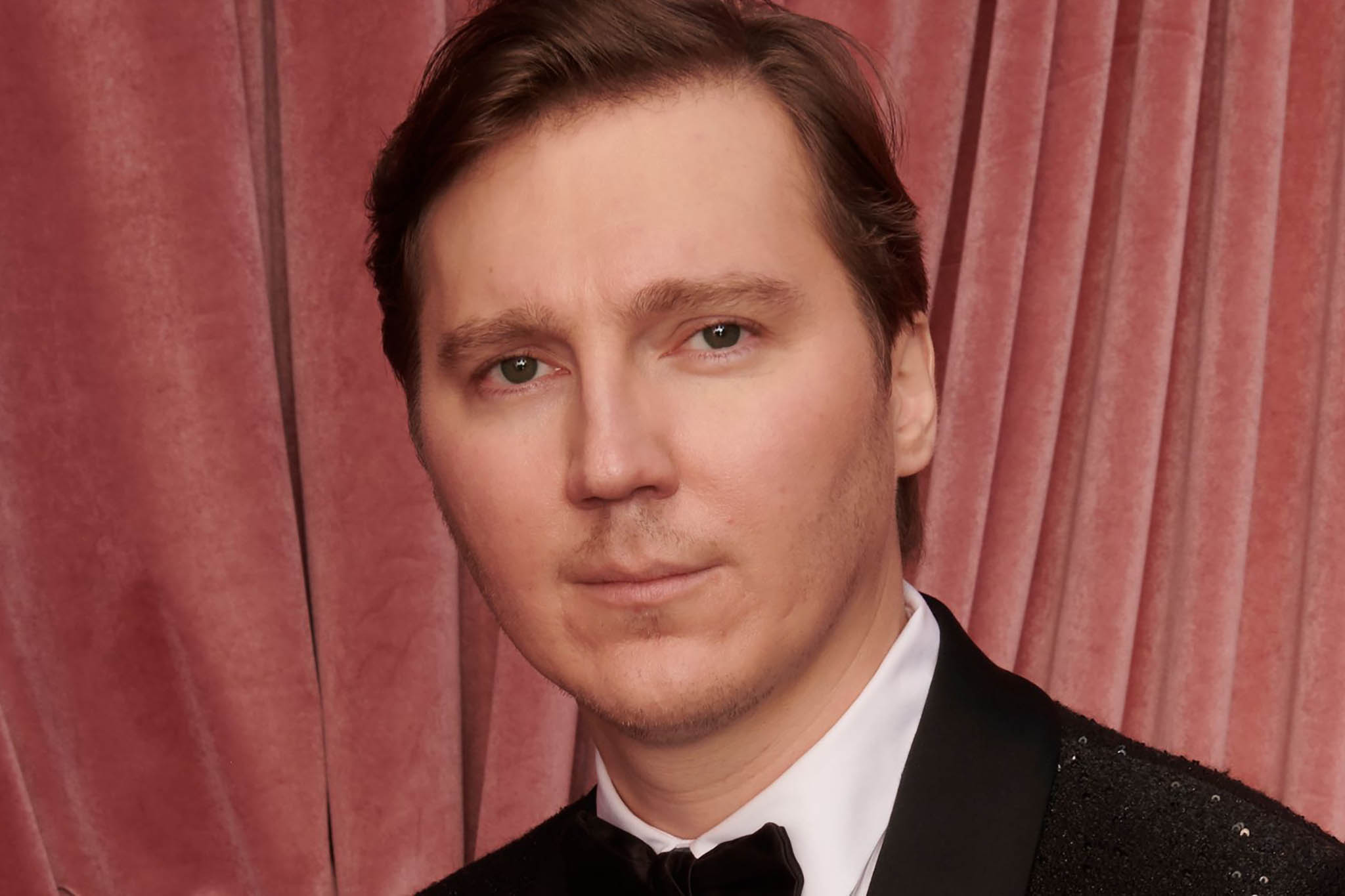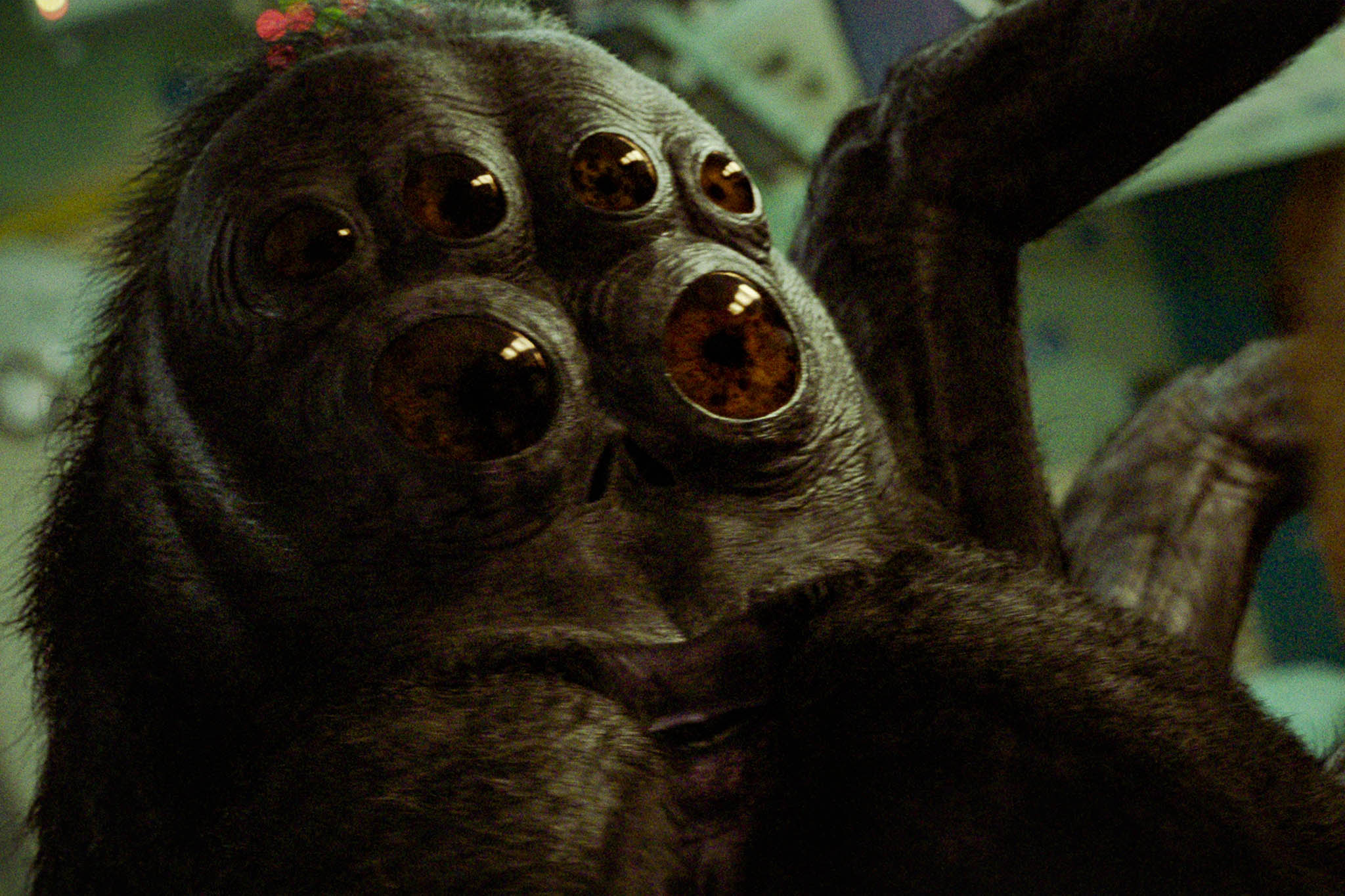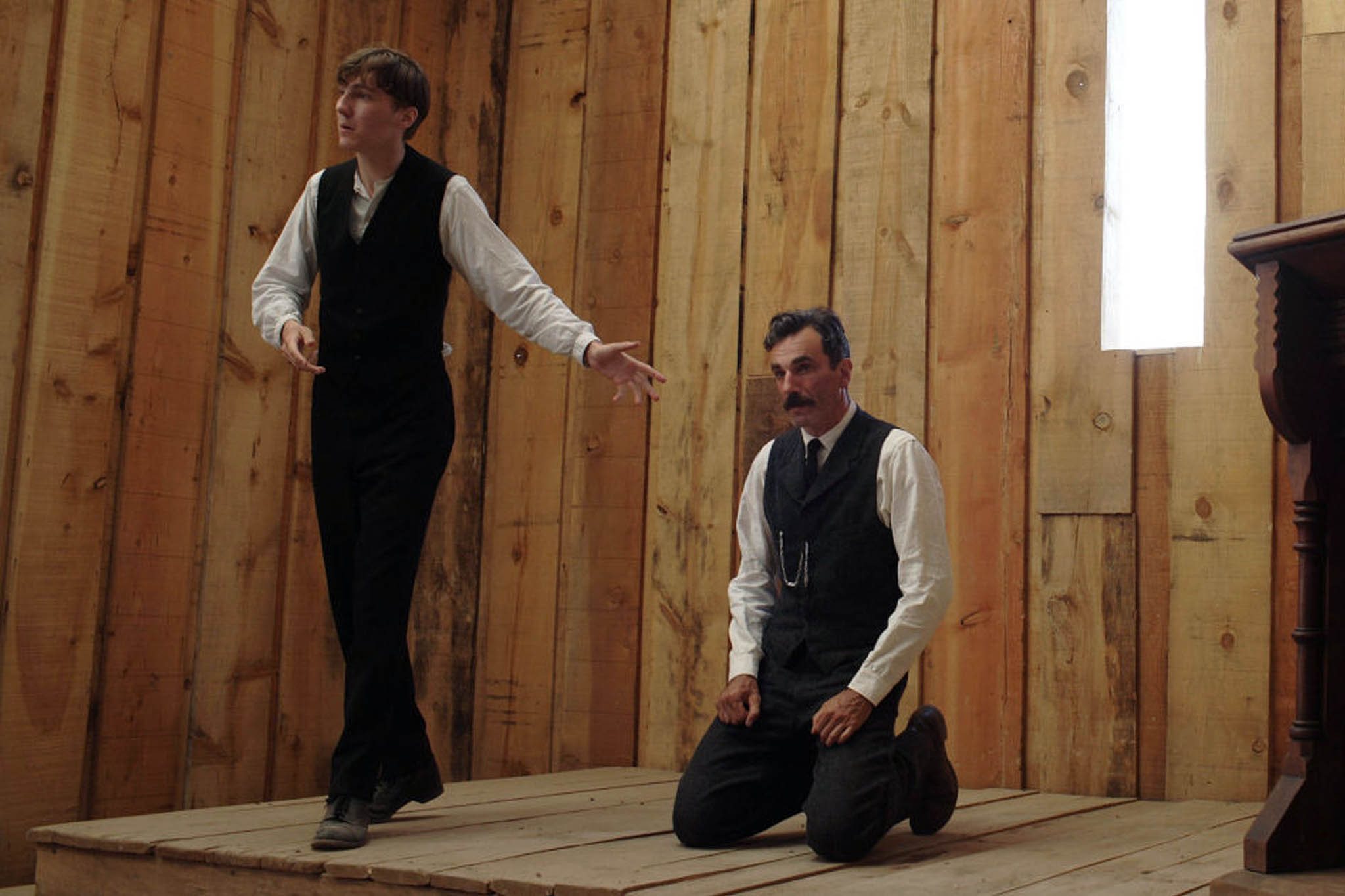Paul Dano on superhero fatigue and Daniel Day-Lewis: ‘If I could only play dorky guys with glasses, I wouldn’t want to be an actor’
The scene-stealing star of ‘There Will Be Blood’, ‘Little Miss Sunshine’ and ‘The Batman’ speaks to Adam White about voicing an enormous CGI spider in the Adam Sandler Netflix film ‘Spaceman’, his forgotten rock band and why method acting is misunderstood


I’m slightly embarrassed to speak about it under this circumstance,” Paul Dano winces. “Is it gonna lead somebody to listen?” The actor might hate me for mentioning it, but he used to be in a band. Found today in the deeper recesses of Spotify, Mook released two records. They were strange, muddy psychedelic things, made back when Dano was in his early twenties and a reluctant movie star. Little Miss Sunshine had been a big deal. There Will Be Blood had been even bigger. But public attention was tough, frightening. How he dealt with it was to go back to school and make stoner jams with his besties.
“I wanted a certain amount of distance from… whatever it is,” he says. These days he’s more comfortable with “it”, but he still tiptoes around words like “fame” or “celebrity”. “I was still fairly young, and personality-wise it was strange to start getting recognised. That wasn’t something that I was seeking. I wanted to work more and be in certain kinds of films, but also set boundaries with some of the other stuff that comes with it. I think it was just necessary.” And so we got Mook – a breadcrumb to follow in the mystery of deciphering Dano.
Sitting at home in New York and dressed in sweats and a pink beanie, the 39-year-old has a gentle countenance and a deep, slightly monotonous voice. It has an odd effect. He is both friendly and aloof; familiar yet a total stranger. Dano isn’t guarded, per se, but he is uniquely inscrutable, with a propensity for long pauses and half-thoughts. I am no closer to cracking him at the start of our conversation than by its end.
Onscreen, Dano is one of cinema’s most dexterous stars, maybe down to that baby face of his. It’s cherubic. Sweet. Completely terrifying in certain lighting. In Prisoners, 12 Years a Slave and The Batman, the latter of which saw him play The Riddler to Robert Pattinson’s Dark Knight, he gave good villain. For the lopsided romcom Ruby Sparks, the Beach Boys biopic Love & Mercy and Steven Spielberg’s semi-autobiographical The Fabelmans, in which he played the proxy of the director’s father, he leant in the other direction. These were the films that harnessed that slight woundedness of his, that sense of a fragile soul on the cusp of total implosion.

But does Dano have a story, some grand arc to explain how he went from A to Z? The story seems to be… that he doesn’t really have one. Or at least one that we know about. I ponder if his work is the way in, if there are links to be found between his choices. Wildlife, for example, his 2018 directorial debut starring Carey Mulligan and Jake Gyllenhaal, revolved around the dissolution of a marriage from the perspective of a young boy. He co-wrote it with the actor Zoe Kazan, his partner since working together on a play called Things We Want in 2007 (today they have two children). The Fabelmans was about a marriage that, despite its manicured appearance, was fraying at the seams. Spaceman, Dano’s new Netflix film about an astronaut conversing with an enormous CGI spider who may or may not be a figment of his imagination, is also, unexpectedly, about a doomed marriage. So he’s interested in stories about marriage, right?
“I never thought to correlate Spaceman with Wildlife and The Fabelmans,” Dano tells me. Dammit. “My pull towards those films was about trying to understand my own parents in some way. And in a way working out my own experience.” But Spaceman? “I more interrogated it from the point of view of the spider.”
Dano gives voice to the spider in the film – a lightly surrealist yarn about love, loneliness and human frailty. Adam Sandler, sporting a vaguely pan-Russian accent that you never quite get used to, receives therapeutic wisdom from the spider while floating around a space station. Back on earth, the astronaut’s pregnant, unhappy wife (Mulligan again) gazes out of windows while mourning what should have been her great love story. The spider asks Sandler’s character about where the love went, why he chose isolation, why human beings are such baffling, baffling creatures. Spaceman seems destined to become a divisive curio on the CVs of everyone involved, but it’s also so unusual that it bears witnessing regardless.
As soon as the word ‘content’ came into what we do – meaning making movies or TV – it meant quantity over quality, which I think was a big misstep. And I certainly don’t need that as a viewer or as an artist
For Dano, that seemed to be his motive for signing on. “When I heard that it was Adam Sandler on a spaceship talking to a giant spider, I was like… OK,” he laughs. “It sounded crazy enough to be something.” So definitely not the marriage thing, then? “Golly, I was thinking more about what it’s like to be a spirit guide, you know?”
Dano is very much the sort of man to earnestly use the word “golly” in casual conversation, lending him the air of someone aged both 39 and 86. He had this slight out-of-time quality as a kid, too. Born and raised in New York, Dano was a child actor, primarily in theatre. On camera, his characters tended to be young people who’d get beaten up for their lunch money. The teen comedy The Girl Next Door and a few episodes of The Sopranos both cast him as bookish dweebs – think high schoolers who even Matilda Wormwood would call a bit too swotty. He didn’t especially like it.
“If you look at those parts, there is a clear caricature or impression there of, you know, ‘dorky guy with glasses’, which…” He leans in close to his camera, filling up the lens. “As you can see, I am. But I think that if I could only do that type of part as an actor, I don’t know if I’d want to be an actor. I think it would have fallen away.”
The Girl Next Door, in which a schoolboy played by Emile Hirsch falls in love with a porn star, brought Dano to Los Angeles at 18. He lived in a fancy hotel for a month and felt lonely. “I was around other child actors and knew how challenging it could be, but I was trying my best to play a longer game. Which is hard, because you feel so not in control. I don’t think it was confidence on my part, or ego, I think there was just a part of me that felt like I really wanted to still be doing this in 20 years’ time.”

When he was cast as a potentially dodgy boyfriend by the filmmaker Rebecca Miller in The Ballad of Jack and Rose, a mournful drama starring Miller’s husband Daniel Day-Lewis, Dano began to see glimpses of that future. “I played someone who I would consider to be not like myself,” he stammers. “He was a little bit punk-rock. Kind of, you know, bad… um… ass. It confirmed to me that I could maybe be an actor.”
Because he worked with Day-Lewis twice in quite quick succession – There Will Be Blood was shot two years after Jack and Rose, with his role as a mute-by-choice angsty teen in Little Miss Sunshine coming in the middle – I assume they must have been friendly. “I mean, I wasn’t pals with either of Daniel’s characters, so I think there was a natural distance kept,” he says. I mention that the actor Vicky Krieps, who worked with Day-Lewis on the barbed romance Phantom Thread, has also spoken about being kept at a distance by her co-star – that it made the film and the dynamic between their characters brilliant, but felt difficult in the moment.
“I think these things sound, out of context, a little different than they are in practice,” Dano says. “It feels really natural. It doesn’t feel like an artificial boundary being put up.” In There Will Be Blood, Dano and Day-Lewis are at violent odds – the former an unsmiling snake, the latter a gruff capitalist drenched in sweat and oil. “It’s appropriate to say we were enemies [on-camera], so [off-camera] it was not about getting to know each other, right? It was about creating distance and intention, and letting those things come together on camera.”
He continues: “For me, it was never at the cost of anything or anybody else. I think you sometimes hear some wacky stories with other method actors. It can come across…” He trails off. “I think it can sound funny. But this all felt in service of the material in a way that felt really good to me.”
OK, so he didn’t end up being best mates with Day-Lewis. But the film did seem to cement the kind of career Dano would end up having – rich character parts, sometimes showy, often left-of-centre, always interesting. He shot the film while studying English literature at The New School university in Manhattan, and returned to campus once production had wrapped. It was a one foot in, one foot out approach to filmmaking. Dano could slip under the radar, make music, be as normal as one could theoretically be when most of America has just seen Daniel Day-Lewis tell him he’s drunk his milkshake.

Over time, Dano has loosened up a little. The Batman, he says, was a major professional and personal pivot – he’d largely avoided work on that scale till then. “But I was able to really enjoy it. It wasn’t too much for me. I liked the fan fervour around it. I became a total Batman dork.” He even wrote a Riddler comic book, published to strong reviews in October 2022, that traced his interpretation of the character’s origins.
Today, on the heels of The Marvels, Madame Web and The Flash, The Batman feels a bit like one of the superhero genre’s last stands – that final gasp of money-making, crowd-pleasing, cape-and-cowl goodness before franchise fatigue set in. Does he have theories as to why The Batman made it out alive? “There are enough comic book movies where you just know what you’re gonna get. Reading the script for The Batman, you knew it was a real film. Every sentence… that’s just [writer/director] Matt Reeves.”
He thinks our current superhero malaise is the product of an erratic film industry. “It’s an interesting moment where everybody has to go like, ‘OK – what now?’ Hopefully from that, somebody either breathes new life into [comic book movies], or something else blossoms which is not superheroes. I’m sure there will still be some good ones yet to come, but I think it’s kind of a welcome moment.”
“It’s a larger thing, too,” he continues. “As soon as the word ‘content’ came into what we do – meaning making movies or TV – it meant quantity over quality, which I think was a big misstep. And I certainly don’t need that as a viewer or as an artist.”
Dano is passionate, but his voice retains its placid simmer. It might be the most animated he gets when he’s not on a film set. But who knows?
‘Spaceman’ is streaming on Netflix
Join our commenting forum
Join thought-provoking conversations, follow other Independent readers and see their replies
Comments
Bookmark popover
Removed from bookmarks